You know you’ll have to do a lot of translating when you go to a foreign country. We used to look like idiots flipping through little phrase books, but now our smartphones are bona fide interpreters waiting in our pockets. Before you are too relieved and complacent, however, there are several things the language app on your phone will not be able to translate for you in France.
Lost in Traduction – Part 1
1. Numbers
It’s logical that words would be different in a foreign language, but surely the numbers should be the same, right? Well they are when they’re typed, but French children learn to write numbers much differently than we do. The 1 has a long tail in front, making it look like a 7, the 4 loops down, looking like a 6, the 7 is crossed, and the 9 is written with the curved line as when typed, not like a loop on a stick. Here’s one example for you:
2. Dates
The image above is also a good example of the different date format, as well. Notice that they write the date as day/month/year*. Putting the day before the month can be very hard to get used to and is the source of many errors. Be vigilant if your birthday is in the first twelve days of the month!
*OK, this is mostly a problem for Americans
3. Letters
Even when you know the word, it can be difficult to decrypt it if written by a French hand. You could miss out on something delicious, as many bistros hand-write their menus on a chalkboard. Here are a few examples of real French handwriting:

Can you decipher this? The P, Q, F and J all look similar.

And this? That first letter is a capital M in French cursive! And check out the L and T.
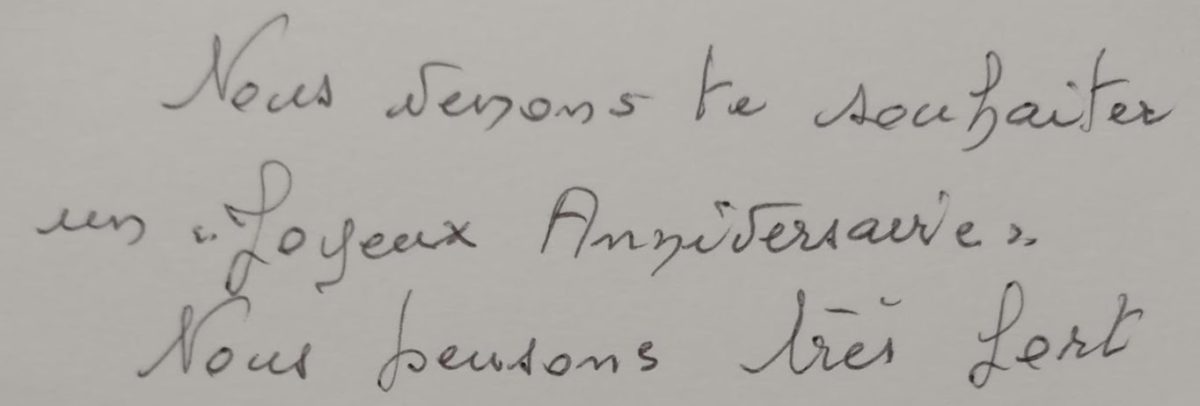
The handwriting of older generations is rather flowery, as they were taught to write with fountain pens and inkwells up until the late 1960s.
Even today, the French still place a lot of weight on penmanship, and school children are graded on it. I was shocked when our kids learned to write in cursive in pre-school!
4. Time
Unless you’ve served in the military, taking a train at 16:30 is bound to confuse you. But the French systematically use the 24 hour clock in daily life, not just for official business. It can be difficult to get used to…after 17 years here, my brain still initially thinks 9 PM when I hear 19:00 (it’s 7 PM).
5. Currency
It’s no surprise that you’ll need to translate the currency for every price, if you’re coming from outside the euro-zone. One unexpected difference, however, is the way the French represent amounts of currency. They put the euro symbol at the end and indicate the thousands and decimals like this:
$12,500.00 = 12.500,00€ or 12 500,00€
What can also startle you is when people refer to amounts in Francs. This usually happens with older French people, who will sometimes even speak in ‘ancien Francs,’ which was two currencies ago!
 6. Sizes
6. Sizes
Shoes, Tops, Bottoms, Bras, Belts, Gloves, Children’s items…Do you know what sizes you wear in French clothes? You could cheat with your smartphone, but sometimes the item takes US sizes in inches. So when you go to a French store to buy some jeans, and the salesperson asks what size you’re looking for, your answer could be 26 or 36! Doing your homework beforehand (helpful link) will make you look like a seasoned Parisian shopper as you glide through the boutiques.
7. Grades
This is a double point, because we’re talking about grades in terms of school year as well as grades in terms of marks…because the French do both differently, of course. If you have school-aged children around, learn this tip so you’re not completely lost.
The easiest way to explain the school year equivalents is with a chart:
For marks/grades, the French use a 20-point grading scale, but it’s not as straightforward as you’d think. It’s commonly said that 20 is reserved for God, so basically 16 and above is considered an A. Don’t scream if your child comes home with a 10, which would be 50% or failing in the US system, because it’s actually the equivalent of a C in France.
8. Measurements
Also a bit like currency, if you’re coming from a country that doesn’t use the metric system*, you won’t be surprised at having to do constant mental gymnastics to figure out measurement units for temperature, distance, quantity, and weight. Some measurements are so ingrained that we don’t think about their metric equivalent, however.
For example:
- Surface is measured in hectares (10,000 m2) instead of acres,
- A metric ton does not weigh the same as a US ton nor a UK ton
- Gas mileage is not measured in miles per gallon but in number of liters burned per 100 kilometers!
*Again, this is a bigger problem for Americans
9. Notes
What do you think of when you hear the words Do Re Mi? I’ll bet you €100 it’s the song from The Sound of Music. Well in France, that is the actual musical scale! You don’t sing something in the key of G, you sing it in “Sol”. Also, the note B is “Si” and not “Ti” (a drink with jam and bread).
10. American Movies Titles
- Some US movie names are the same in France, like Pulp Fiction, ET, Casablanca
- Some are direct translations, like La Guerre des Etoiles (Star Wars), Le Seigneur des Anneaux (Lord of the Rings) or Le Parrain (The Godfather),
- But many are completely different and impossible to guess
- The Hangover = Very Bad Trip
- Pitch Perfect = The Hit Girls
- Coal Miner’s Daughter = Nashville Lady
- Office Space = 35 heures C’est Déjà Trop (35 hours is already too much)… ???
11. Noises
Some French noises you do learn when studying the language, like “aïe” for pain (ouch) or the famous reaction “oh la la”. But the French will make several sounds that have distinct meanings without corresponding to actual words.
For example:
- “HHH” (a sharp, short inhale at the beginning of the word oui): “yes”…but often the word “oui” isn’t actually pronounced, just the quick inhale
- “Bah”: the closest English equivalent would be ‘well’ as in “bah je ne sais pas” (well, I don’t know) but often this noise just fills up empty space
- “Pfft” (blowing air out loose lips, sometimes like a raspberry): “I don’t know” or “I’m exasperated”, a cross between a scoff and a sigh
- “Bof”: “blah” or “so-so”
- “Hop” (sounds like ‘up’): like “poof” when something sudden happens, “et hop” is like saying “bingo” and “allez hop” is equivalent to “off we/you go”
- “Chut”: “shhhhh”, when you want someone to be quiet
- “Beurk”: “yuck”, when something is disgusting
- “Miam”: “yum”’ when something is delicious
And then of course there’s the whole list of onomatopoeias of animal and object noises. Someone at the door goes “toc toc”, but the phone goes “dring dring”. For the most part you can figure these out, but “pan-pan” for “bang-bang” and “plouf” for “splash” may not immediately occur to you.
12. Gestures
One dead give-away that you’re not French is when you hold up your index finger to indicate the number 1. The French start counting with the thumb, so the thumbs-up gesture for us is the number 1 for them, thumb + index = 2, etc.
A gesture that means the opposite in French is the OK sign we make with our index and thumb, with the other fingers up. Be careful, because in France, this sign means zero and is used when something is worthless…or not at all OK!
One gesture that I misinterpreted for a long time was this:
I thought it indicated money, or “moolah” like in Italian, but in French it actually means fear! Pourquoi? you ask. Because in previous generations, teachers punished school children by rapping their fingertips with a ruler, which made them say “aïe”.
Another funny gesture whose meaning is hard to guess is the two-fingers-in-the-nose. There’s an expression in French, “les doigts dans le nez” which is a bit like “with a hand tied behind my back”, meaning something that’s easy to do. So when a French person looks like they’re going to put their first two fingers in their nostrils, it’s to show something is simple.
There are many resources online to show other common French gestures (You Tube video), beyond the world-renown Gallic shrug, but the most fun is discovering them during live conversation.
13. English!
I must apologize to all the French I know who speak wonderful English, especially my dear husband. But I feel it would be a disservice to my fellow ‘Anglophones’ if I didn’t warn you about this last one. In fact, part two of this Lost in Traduction series will be a whole article on understanding French people speaking English, but I’ll just touch on one major aspect here…pronunciation. Admittedly, writing is not the best medium to tackle pronunciation, but I’ll try my best.
There are two main problems that the French have when forming English words: 1) pronouncing the letters like they do in French, and 2) putting the emphasis on the wrong syllable. You will likely be stunned by these immediately upon arrival, because contrary to the rumors, the French will try to speak English with you if they suspect it’s easier than struggling through your French. Only, you have probably not heard the English words pronounced quite that way…
Yes, there’s the classic French accent where they replace ‘Th’ with ‘Zz’. But there’s also the short ‘i’ sound, which doesn’t exist in French, and which causes beaucoup confusion. “I weel leeve” could mean ‘I will live’ or ‘I will leave.’ Their attempts at vulgar language can miss the mark, because we generally assume the Francophone is innocently talking about a sheet or the beach.
And the syllable mix-up is sometimes even more puzzling. In French words, the emphasis is always on the last syllable, but in English it jumps around with every word, making it very hard for non-native speakers. I’ll never forget the time a Frenchman was telling me about his favorite English actors, only I couldn’t figure out who Keer DooGLASS or MonTEE PeeTONE were (can you?**).
Final word of warning, these pronunciation challenges apply to your own name, too! Don’t get caught like the poor woman at the embassy, hearing “Madame ZheelBARE” called ten times before realizing that was her, Ms. Gilbert.
**Kirk Douglas and Monty Python
I hope this little primer helps you get up to speed with life in France, regardless of your language level. Stay tuned for more language and culture hacks on the Renestance blog.
Dennelle is the President of Renestance and a bilingual American who’s lived in France since 2000. She loves so many things about France, its language, culture, geography, quality of life... that she started a business to help others realize their dreams of living in this incredible place.
All articles by: Dennelle Taylor Nizoux

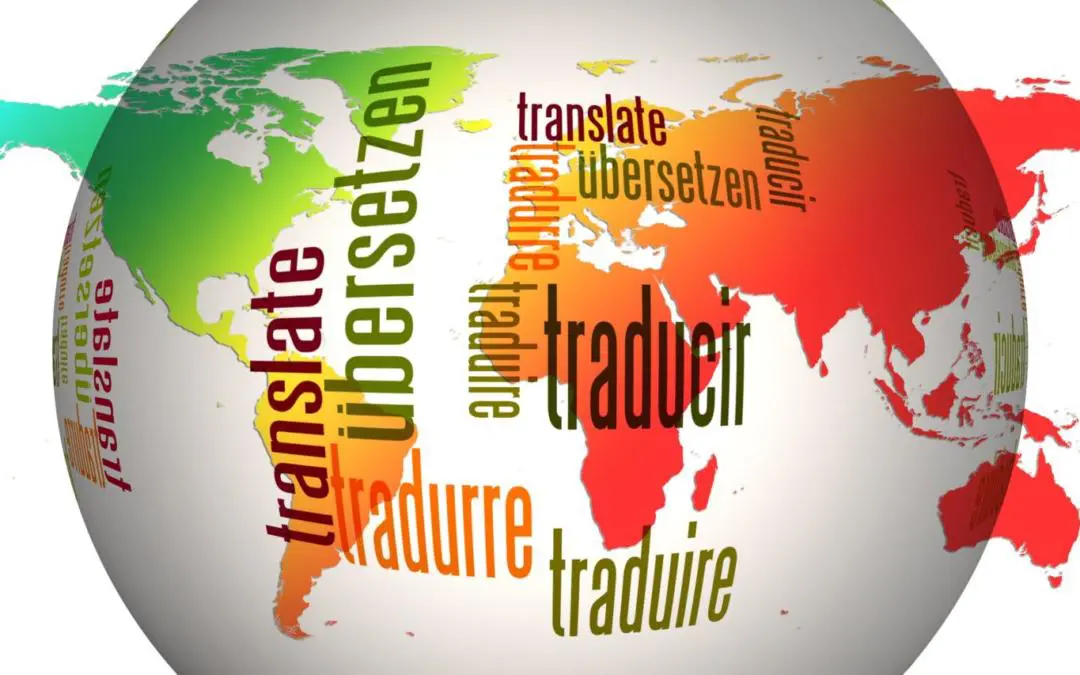

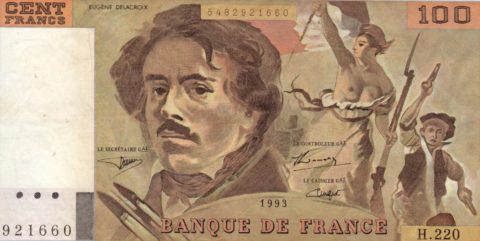 6. Sizes
6. Sizes
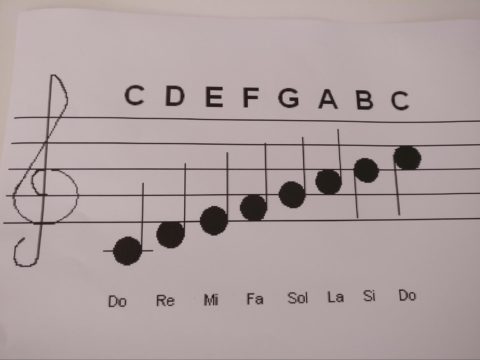
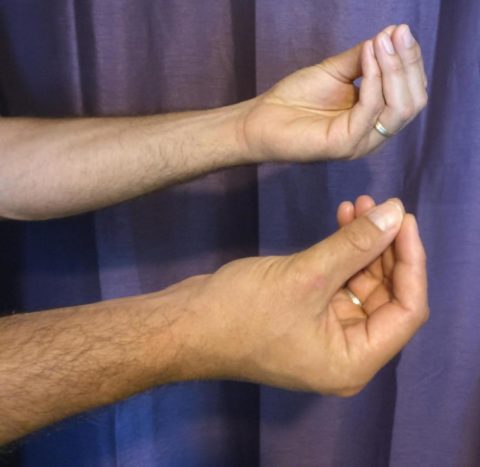
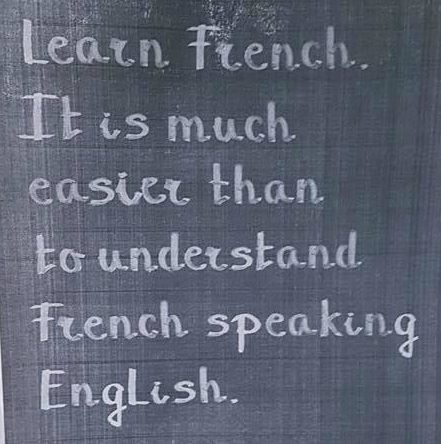

Cliff Mueller
on 2017-07-10 at 16:00OK. Now I’m completely confused. I’m sticking with Bonjour and Merci…oh, and MonTEE PeeTONE.
Dennelle Taylor Nizoux
on 2017-07-10 at 19:27Haha, yes. When you can’t understand French (spoken or written), or English when spoken or written by a French person, that pretty much leaves facial expressions, sounds and gestures for communication. At least now you have some hints on those last ones… 🙂
Janice Heath
on 2017-07-10 at 19:10I really enjoyed this. I wish I had known them before I came to live in France.
Dennelle Taylor Nizoux
on 2017-07-10 at 19:23Thanks, Janice. Yes, I wish I had, too. Should we share this information with those on their way over, or let them find out for themselves, too? 😉
Ellie
on 2017-07-10 at 23:03Did you actually come across someone who thought Monty Python was the name of an actor rather than the name of the Comedy group? ?
Dennelle Taylor Nizoux
on 2017-07-11 at 07:59That would be hilarious, but I think he was referring to the actors in the group. Makes you wonder how many people out there think Monty Python is an actor, though…probably about the same who think Pink Floyd is a person! ?
Emmanuel Lemor
on 2017-07-13 at 00:04As a French person who lives in the U.S. [and who is trying to come back to France – save me 😉 lol ], this made my day…
And reminded me of my youth as well [not that I am any sort of old actually 🙂 ]
So, thanks for making me laugh and brightening my day with the ever so true 😉
Cheers,
(Coucou)/(wave) de San Francisco
Dennelle Taylor Nizoux
on 2017-07-13 at 09:31Merci for the comment, Emmanuel, and coucou to SF! Yes, I’m sure most of it is true in the inverse for you in the States – the measurement system alone must cause you constant headaches ?
Watch out when you come home to France, though… many things will seem strange again. Everything will seem tiny, you’ll have to get used to bises instead of hugs, and the customer is not king! haha
That was such a fun post, Dennelle, and I can relate on so many levels! Even the seemingly “normal” things can cause confusion. I still have trouble w/French penmanship even after 5 years here! Schools put such an emphasis on it, but it’s like gibberish. I can’t make out all the letters.
Dennelle Taylor Nizoux
on 2017-07-13 at 09:42Thanks, Diane – it was a lot of fun to write! When you’re here for a while, sometimes you forget the things that threw you off in the beginning…but some things continue to cause confusion, and old habits die hard. Apparently I make most of the French noises now (says my mother), but I still struggle to write numbers the French way. It just feels weird to put a long tail on the 1! And I can’t write in cursive to save my life, which means my children can’t read my writing. ?
Estelle
on 2018-05-09 at 13:11J’ai adoré cet article et j’ai beaucoup ri :-)))
Merci c’était très instructif en plus d’être drôle !
Keith Layman
on 2018-08-30 at 09:47Just when I thought it could not get any more difficult,lol,although I knew most of what you said about the “numbers”
Eh oui, living in France certainly keeps you mentally agile! 🙂